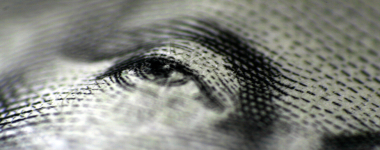In imploring the world to be less dependent on the US dollar for international transactions, French finance minister Michel Sapin is expressing a wish that many of the euro’s creators hoped would already be reality.

Backed by the bosses of some major French companies, Sapin argues in a Financial Times interview that Europe should break free from the longstanding use of the dollar for international commodity and goods transactions, and as the intermediary currency for foreign exchange trade. At present, the FT reports, half of all cross-border borrowing and lending and 87% of forex trade is conducted in US dollars, which also make up 60% of the reserves held by the world’s central banks.
On the face of it, it’s not an outlandish idea. Europe can claim to be a bigger unified economic space than the US, and in some ways it is more structurally balanced. The Eurozone’s current account has recently moved slightly into surplus, in contrast to the chronic US deficit. As a result, Europe avoids an American-style reliance on capital inflows to pay its way. Critics say it’s only the dollar’s reserve currency status that allows America to get away with this – uniquely borrowing abroad in its own currency, at near-zero interest rates. This, some allege, also enabled the massive international “imbalances†which led to the 2007-2008 crash, and have not been corrected by it. A “rebalancing†of the world economy, by switching global payments away from the dollar, is part of Sapin’s plea.
Currency rivalry
Unfortunately for the Eurozone, and other aspiring economic blocs in Asia and Latin America, the dollar’s status as reserve currency is more than an outmoded historical artefact. The US economy may no longer be the world’s biggest, if Europe is treated as a single commercial space. But the way that space has been constructed makes the euro a very pale substitute for the greenback. Euro-denominated debt is still backed by its national issuers, not the whole Eurozone, meaning that the European Central Bank (ECB) lacks the guarantee and lender-of-last-resort powers of the Federal Reserve – even if the ECB governor might pledge to do “whatever it takes†to preserve the Euro by supporting debts issued in it.

